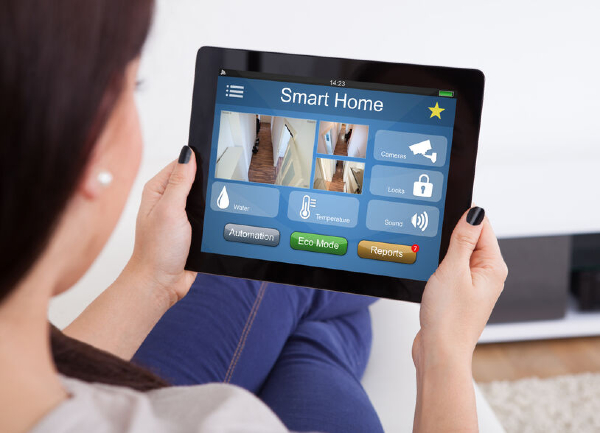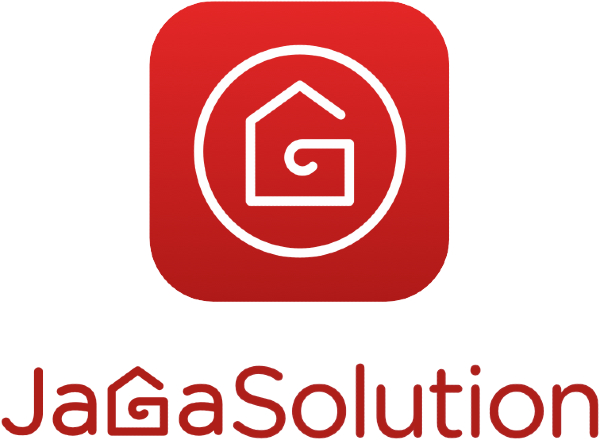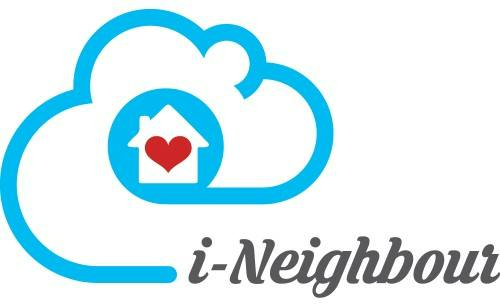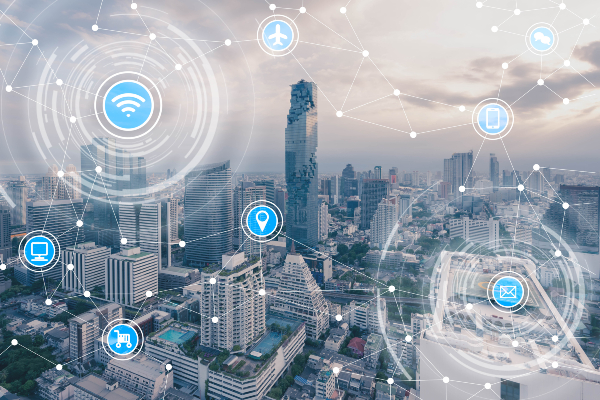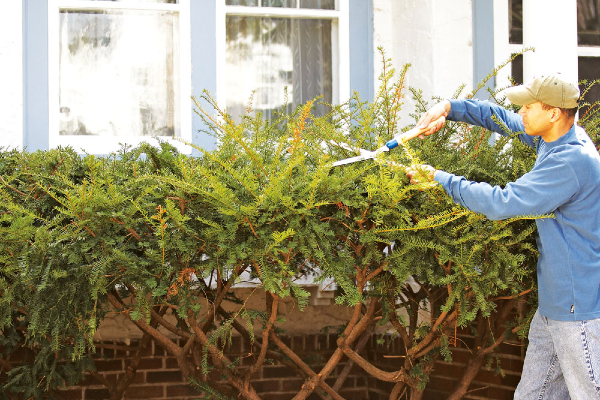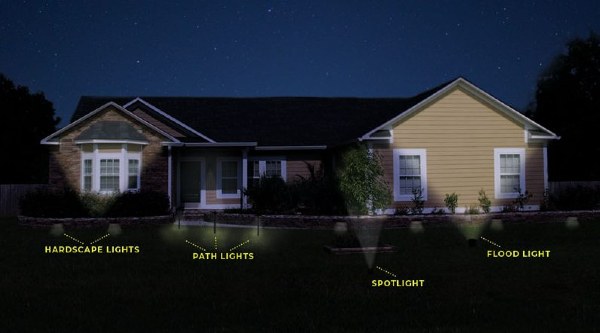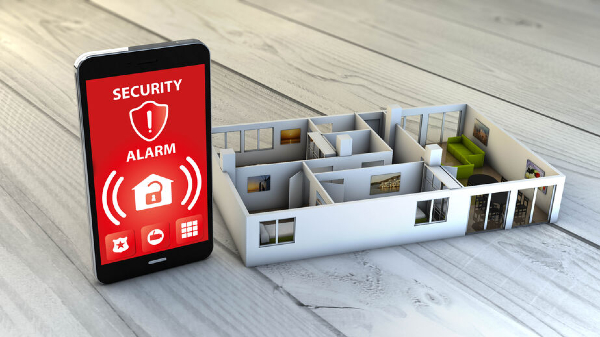Back in the day, home alarm systems were considered top of the line when it came to home security. Entire neighbourhoods need only be gated and guarded for them to be deemed safe.
Today, this technology has grown leaps and bounds to become the smart community solutions we know, providing better security not just for individual homes – but entire neighbourhoods alike.
In 2020 last year, crime rates in all states in Malaysia (except three) saw a decline, with seven dropping below the national level in 2019 (hurray!).
Despite the declining crime rates, how can you – as a homeowner – take matters into your own hands to protect your loved ones, not just within the home, but the community as well?
What Makes A Smart Home?
A ‘smart home’ typically conjures up scenes of voice-activated devices and ambient lighting controlled from a mobile app.
While that is the case as well, smart home systems are exceedingly more useful for their ability to put a home’s safety within the homeowner’s own hands.
CCTVs and motion-sensor lights come to mind for many, but there are also components such as smart doorbell cameras.
These can be particularly useful for landed, gateless homes. Discreet and inconspicuous, the live video footage can be viewed directly from your phone, with many options on the market also providing two-way audio and motion sensing to boot.
Today, there are even smart locks which can unlock doors based on your phone’s proximity to it!
Smart home systems come in a wide range, from single component installations to fully-integrated systems – and all you need is a stable WiFi connection.
Google Nest, for instance, comprises Google’s entire range of smart home devices, with Google Home Mini being the most affordable voice-activated speaker at approximately RM150 to RM200.
Closer to home, MAEVI is a smart home system by our very own TNB Energy Services (a subsidiary of Tenaga Nasional Berhad).
For a price tag of about RM2,000, homeowners can monitor their energy consumption, control appliances, and view live CCTV feeds from their mobile phone.
What Makes A Smart Community?
A house can only be as safe as its surrounding neighbourhood. Enter smart community solutions and systems!
Sometimes referred to as property management solutions, these all-encompassing platforms make life easier for everyone in the residential ecosystem – from the developer and Joint Management Body (JMB), to the homeowners, security guards, and guests alike.
Perhaps one of the more well-known names in the industry is JaGaSolution (which you might know as JaGaApp).
Since their inception in 2013, the homegrown platform has played an important role in building smarter and safer neighbourhoods here in Malaysia.
Its director, Ignatius Ho, shares how the platform started, and has grown over the years to become what it is today:
“JaGaSolution started with JaGaApp, the resident-facing (or what we call the ‘front-end’) of our platform. Naturally, we are also more known for this flagship product, simply because this is the app the residents download.
To date, we actually have four other products including JaGaCount (our accounting system), JaGaCard (our IoT division that integrates with access card systems and other devices), JaGaRonda (our guard tracking and management system), as well as JaGaPay (our payment facilitation engine).”
Though JaGaSolution is not the only smart community system out there, Ho explains how it’s the only one of its kind in the market.
“We are focused – much of the competition within this space come from different backgrounds. Some come as an extension to their accounting business, or from hardware and access card systems. Others as an extension from their tech development business.
For us, we are a fully-focused and committed team, independent of the constraints of a ‘big brother’ dictating our direction and priorities. This enables us to develop our system freely for the best of our customers,” he elaborated.
While the platform offers a variety of features, such as the ability to notify family members during home emergencies and search for community vendors (house cleaning etc), current usage of JaGaApp primarily revolves around two of their features.
“In general, the most used features are firstly the Visitor Management System (VMS) where we currently have on average 1.4 million visitors going through our platform monthly. Our Facility Booking feature is also very widely used, especially now as we’ve moved out of the MCOs and things are opening up.
I am proud to say that we, as a system, have satisfied many client requirements such as the ability to prove vaccination in-app before a Facility Booking is approved, as well as limiting the booking pax for different facilities.”
Today, JaGaSolution is part of 400 neighbourhoods, with over 150,000 registered users and counting.
Another smart community system in Malaysia is i-Neighbour, which features an equally comprehensive solution revolving around all aspects of a safe neighbourhood.
“Our ecosystem consists of four pillar modules. These are resident, automation, security and commerce, each with multiple submodules to connect people and equipment,” says Aiden Teh, Business Development Manager of i-Neighbour.
On top of their 200-strong customer base in Malaysia, i-Neighbour is also present in 27 communities internationally, including countries such as Thailand, Singapore, India, South Africa, and Mexico.
Why Aren’t We Seeing More Smart Communities In Malaysia?
All that said, most Malaysians might have observed that smart community systems in Malaysia are primarily in use by upper class neighbourhoods, and still have a way to go in terms of their adoption.
“Lack of funds is one of the biggest barriers which have deterred some communities from adopting smart solutions. We’ve tried to solve this problem by promoting Near Field Commerce, a new eCommerce concept i-Neighbour is championing.
It helps communities self-sustain with funds generated from nearby merchants, as well as the group buy concept which promotes multiple purchases from different customers with a single delivery,” says Teh.
Ho remains optimistic on the current trajectory of smart communities in Malaysia: “We currently see a more educated and informed public, which I feel is great for the industry in general. I think it is important that more information is available to the public.”
The Way Forward For Malaysia’s Smart Communities
On his outlook for the industry’s near future, Teh believes that smart community systems will reach beyond their confines within the residential space:
“The digital transformation trend will drive strong growth in the smart community space that is confined not only to residential communities, but extended to commercial buildings as well – and eventually to a more complex smart township solution.”
“Even within residential communities, the complexity will be elevated for some properties, along with the growing requirements of short-term stays and integrated smart home systems.”
Ho is hopeful for the industry’s future as well: “The smart community space is still in its infancy. In Malaysia, there are many communities that have yet to adopt such a system.
I hope in the near future, the industry will continue to grow both in features and capability which will spur more people to find out about smart community systems for their neighbourhoods.”
What Happens If There’s A Sudden WiFi Outage?
No matter how ‘smart’ these smart homes may be, they come with a weakness of their own. As they’re primarily WiFi-dependent, a sudden WiFi disruption might temporarily disable certain components of your smart home system.
Whether you’re a proud owner of a smart home or not, here are some basic home safety measures you can employ to keep you and your loved ones safe.
1) Eliminate hiding places around the home
Dark, discreet corners such as shrubs and sheds can serve as hiding spots for unscrupulous individuals at night, especially if your home and garden are not well lit.
2) Light up the exterior with motion-activated lights
A well-lit home deters unscrupulous individuals from targeting your home. Consider motion-activated lights so that you don’t unnecessarily run up your electricity bill.
3) Bolster your WiFi strength beforehand
Your home internet password should be as secure as possible to prevent hacker, in addition to Two-Factor Authentication (2FA). Access into your home internet also means access into CCTVs and security systems around your home.
Protecting Your Loved Ones Doesn’t Need To Cost A Lot!
If it’s not within your means, your home doesn’t need to be equipped with a state-of-the-art smart home system. Keeping yourself and your household safe can be as simple as following these basic tips.
- Get to know your neighbours, and notify them when you plan to be away for an extended period of time
- Reduce your home phone ringtone so it can’t be heard from outside
- Use automatic timers to turn lights on at scheduled times, even when you’re not at home
- Refrain from hiding spare keys outside your home
- If you’re moving into a new home, consider changing the locks
- Never announce your vacation plans online
Relevant Guides:
Disclaimer: The information is provided for general information only. PropertyGuru International (Malaysia) Sdn Bhd makes no representations or warranties in relation to the information, including but not limited to any representation or warranty as to the fitness for any particular purpose of the information to the fullest extent permitted by law. While every effort has been made to ensure that the information provided in this article is accurate, reliable, and complete as of the time of writing, the information provided in this article should not be relied upon to make any financial, investment, real estate or legal decisions. Additionally, the information should not substitute advice from a trained professional who can take into account your personal facts and circumstances, and we accept no liability if you use the information to form decisions.



